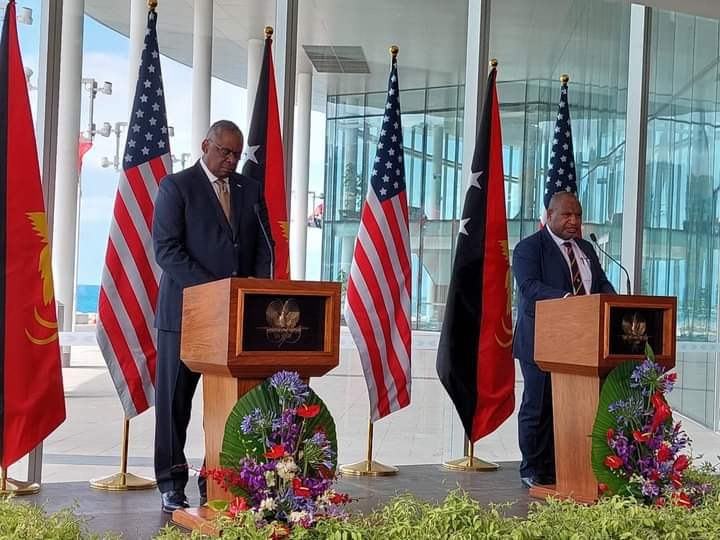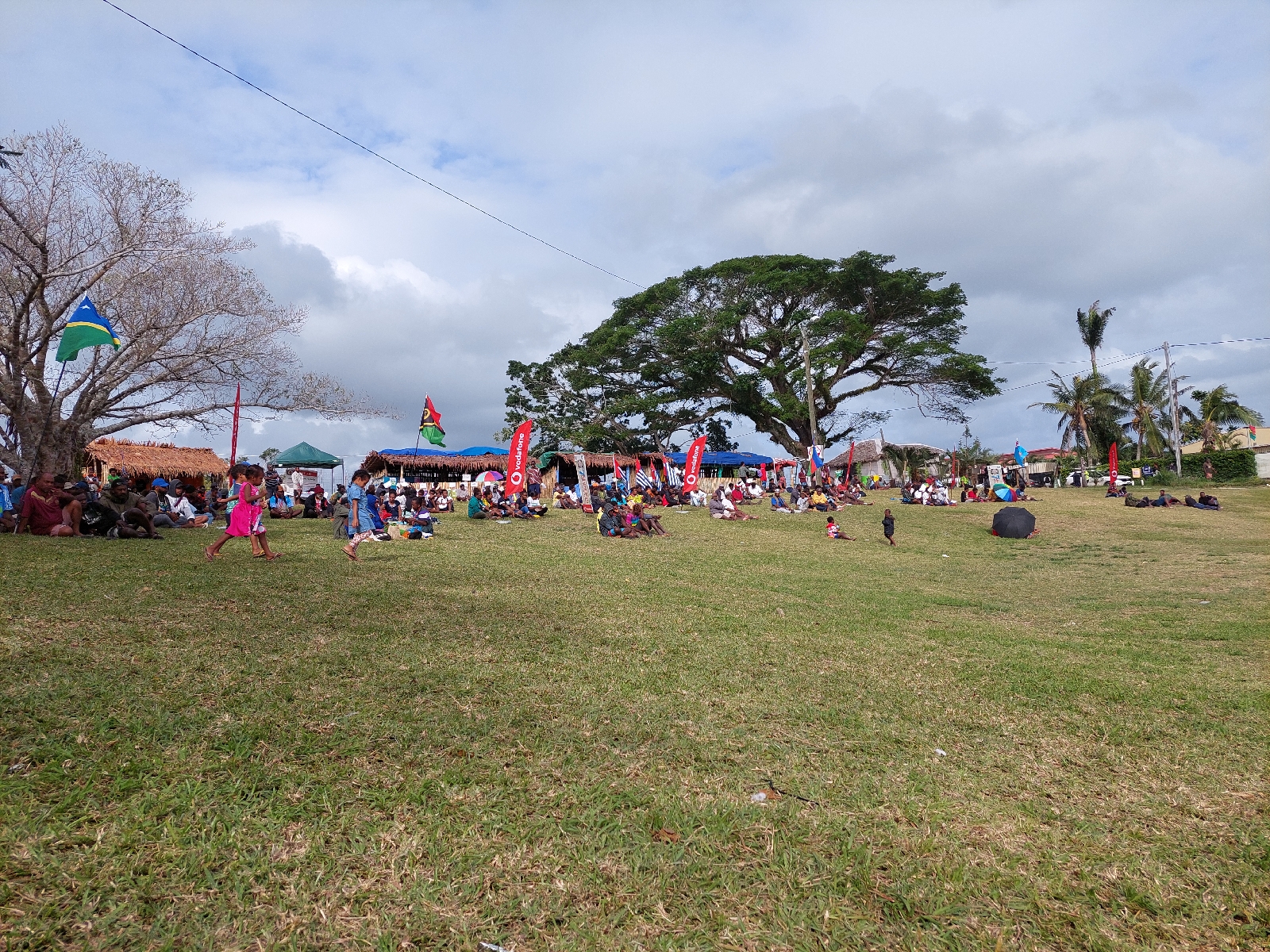2023.07.24
Port Vila, Vanuatu
 Students from Lycée Louis Antoine de Bougainville wait to perform at the 7th Melanesian Arts & Culture Festival in Port Vila, Vanuatu, July 24, 2023.
Students from Lycée Louis Antoine de Bougainville wait to perform at the 7th Melanesian Arts & Culture Festival in Port Vila, Vanuatu, July 24, 2023.Melanesia’s distinctive cultures are being celebrated during a nearly two-week long festival in Vanuatu that organizers hope will be an antidote to outside influence brought by globalization and the internet.
In a raucous parade for the festival’s opening ceremony last week, men from Vanuatu’s southernmost island carried their prime minister, Ishmael Kalsakau, through the capital on a high chief’s ceremonial platform made from logs and vegetation.
Crowds lined the pavement as Kalsakau, holding a traditional staff and a bible, led hundreds of festival participants 1 kilometer (0.62 miles) from the center of Port Vila to a park above the town. Behind him fluttered a West Papuan independence flag, the Morning Star, that is banned in the region’s giant neighbor, Indonesia.
From a stage, emcees told attendees that “black is beautiful,” reminded people of the region’s colonial past and exhorted everyone to have pride in Melanesian identity.
“The Melanesian countries are the last frontier of culture and customs. The Melanesians are very special and unique in their customs and culture,” said festival spokesman Ambong Thompson.
“Due to outside influences that are coming to our countries, this type of influence is destroying our culture. That is why we want the Melanesian countries to come together to celebrate,” he said.

Melanesia encompasses Vanuatu, the Solomon Islands, Fiji, New Caledonia, the giant island of New Guinea – which is divided between Indonesia and Papua New Guinea – and the Torres Strait Islands. It’s a linguistically diverse region of more than 12 million people. Papua New Guinea alone has more than 800 languages.
Rule by outside powers is a common thread in the region, that for some continues in the present and for others ended in the past half century. Vanuatu, for example, gained its independence from joint British and French rule only in 1980.
The festival includes the Kanak people of New Caledonia, a French overseas territory, whose leaders campaign for independence, and Papuans who live under Indonesian rule.
Thompson said overseas popular culture is increasingly influential and copied in Vanuatu and other Melanesian countries such as in clothing and music. One of the festival’s main goals is cultural preservation, he said. Performances were live streamed to maximize their impact.
Despite the concerns about erosion of culture, participation in the festival of the most populous Melanesian country, Papua New Guinea, remained uncertain until after it had begun.
Organizers at one point announced the country had pulled out because of financial considerations. In the end, Papua New Guinea sent about 100 people, making it the second largest group after Vanuatu’s 600-person contingent.
Indonesia, home to about 270 million people, mostly Southeast Asians, also claims to be the most populous Melanesian nation. Some researchers have said that is a spurious claim and part of the Indonesian government’s strategy to stifle the Papuan independence movement in its easternmost provinces, which are often referred to as West Papua.

The festival in Vanuatu is the seventh time the Melanesian Arts & Culture Festival has been held since it began in 1998.
The smallest contingent at the festival was a family representing the Torres Strait Islands, which is part of Australian territory.
They captivated festival goers with a performance about a constellation in the shape of a shark. Family head Alick Tipoti said islanders knew the monsoon season was approaching when the constellation, known as Baidam, dipped into the horizon.
“We’re here representing the Torres Islands, actually we are just a family,” he told the festival.
Performances, all outdoors, continued whether it was blazing hot or raining.
One member of a group from the north of Vanuatu’s Pentecost island fainted twice while furiously drumming in the midday heat.
“The reason why we came down was that we wanted to show that us in north Pentecost, we have our custom and our culture that’s alive and well and we wanted to display it to all of Vanuatu,” said John Bogiri, the group’s leader.
According to Thompson, the festival spokesman, there were two West Papua delegations. One was organized by Indonesian authorities, but was apparently small and kept a low profile.
The larger delegation was aligned with the independence movement and included Benny Wenda, chairman of the United Liberation Movement for West Papua, an umbrella organization of pro-independence groups, who traveled from London where he lives in exile.
It was welcomed by Vanuatu’s high chiefs and assigned one of the country’s provinces, Shefa, as its official welcoming party and festival guardian, according it the same status as national delegations.
Still there was disappointment for Wenda, who had hoped the Melanesian Spearhead Group, a U.N.-recognized organization of Melanesian nations, would act on the liberation movement’s longstanding application for full membership.
A meeting of the leaders of the spearhead group’s member nations was planned for during the festival, but was postponed.
The liberation movement has observer status at the spearhead group while the Kanak independence movement is a full member and Indonesia is an associate member.
“Politically we are not a full member,” Wenda said. “But all the chiefs and Shefa province welcoming us as one family member of the MSG, this is the beginning of the recognition,” he told BenarNews



































